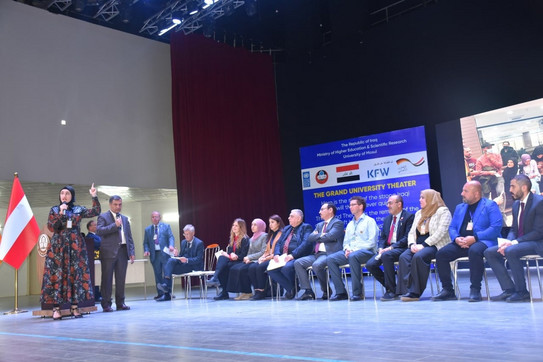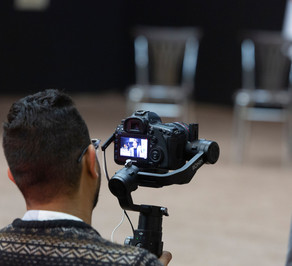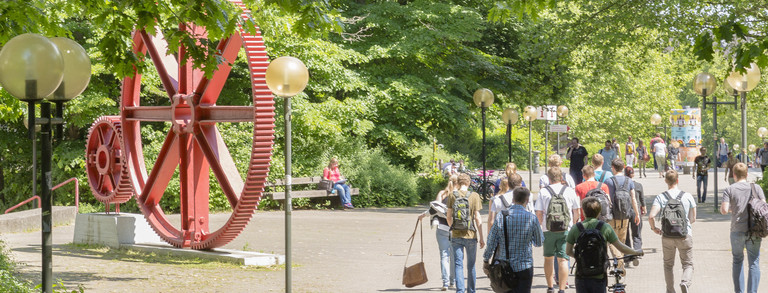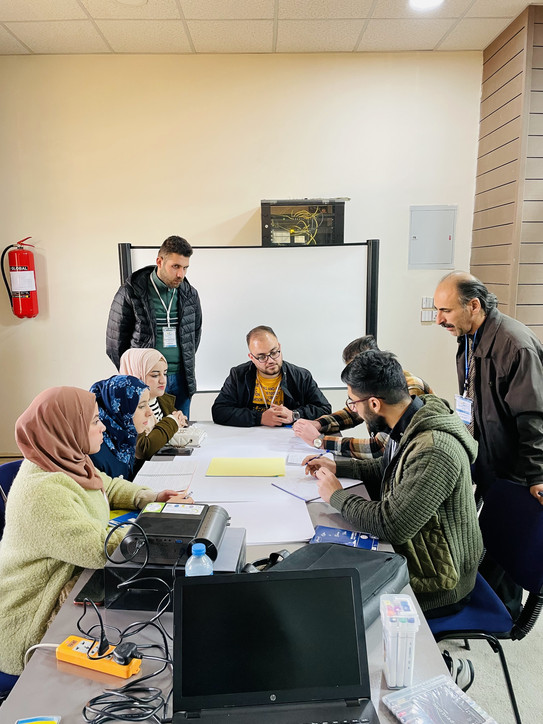Conference Concept
Opening (06.03.2022)
The conference opening took place on 06.03.2022 in the big university hall. The main aim of the conference opening is to introduce all participants to the conference, its concept and importance and to introduce the conference theme by two main keynote speakers. The opening day will also be used for a first meeting of the workshop groups.
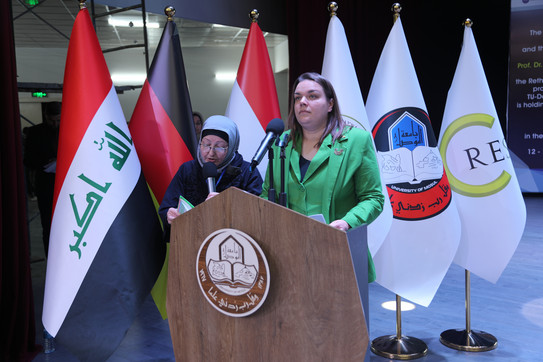
Workshops (07.03.2022-09.03.2022: 9-12.30h)
About 25 parallel interdisciplinary workshops were the main part of the student conference. In each workshop about 20 students from different backgrounds and departments worked under the supervision of an interdisciplinary lecturer team on a specific SDG and related topic. Workshop concepts are currently developed by interdisciplinary partly international lecturer teams. You can learn more about the workshops here…
Students could choose workshops of their preference during the registration process. On the basis of these preferences the scientific committee ensured a balanced selection of students to workshops considering parity in terms of gender, background, motivation, discipline, language competencies, university and involved of students representing minorities.
All workshops are supposed to be inclusive and problem-solving oriented and aiming to strengthen academia, dialogue, reconciliation and interdisciplinary thinking. Furthermore, workshops were supposed to be highly relevant to the conference topic, linked to specific SDG goals and targets, based on a scientific concept, problem-solving oriented, student-oriented, hands-on, inclusive Inspiring, enriching, empowering and fun. All workshops were expected to present their main outcomes in from of a project, idea, concept, approach, initiative (…) on how to contribute to reaching (a) specific SDG target(s) in Ninevah and Iraq in form of a poster, video, etc. Lecturers will have to make sure that every student has ownership of the results and is able to present the outcome to other students on the closing day. Good workshops were considered those which were not excellent in terms of scientific quality and relevance to the SDG is achieved but students took ownership, every group member felt appreciated, everyone contributed to the group results, students had an exceptionally positive collaboration experience and made friends and students had an inspiring project idea to present and felt confident and proud to do that on the closing day. Lecturers are supposed to be scientists aiming to introduce a concept and inspire students for your field of science; listeners, learners and thinkers curious about the ideas young people have; facilitators for a workshop in which students think and create together; Scientific advisors for the coherent presentation of results; moderators of discussions to ensure multi-perspectivity and rules of scientific dialogue are applied and respected; Secretaries to ensure results are well documented and communication smooth; motivators to ensure best-results possible are achieved; proof-readers to ensure everyone is proud of the quality of the results presented; Translation supporters to ensure everyone can communicate their ideas and Cheering proud backup support in the final conference day. All workshop concepts are reviewed several times by steering committee members and lecturers receive about 8 hours input and individual consultations on the development of a workshop topic, a two day-training (8-9.2.) online training on student-oriented moderation and discussion techniques by the director of the Department of Academic Teaching and Faculty Development of TU Dortmund University and an introduction and support to the conference-moodle space by the Computer Center of Mosul University. All workshops were be evaluated at the end of the conferences through an online survey.worked
Conference closing (10.03.2022)
The conference opening took place on 10.03.2022 in the big university hall. The closing day of the conference had two parts:
The day starts with a gallery walk where students will present the outcomes of each workshop (project ideas, concepts …) to each other. Through this knowledge transfer across workshops will be facilitated and each student given the opportunity to develop presentation skills. Results of the gallery walk will be summarized in small guided student teams with regard to the overall conference questions and then discussed in a big student conference. Students will formulate overall conclusions and points for discussion which will be raised by student representatives in the podium discussion in the afternoon.
The second part of the closing day started with a public exhibition of the workshop results. In doing so, we wanted to make sure the outcomes of the workshops will be acknowledged by other students and academics of the university, an interdisciplinary scientific audience, important stakeholders of the local civil society as well as developmental actors affiliated to our partnering organizations. There was a podium discussion, in which students, professors, members of the university leadership as well as external stakeholders were invited to reflect on the conference theme and express their thoughts on questions of sustainable reconstruction as well as the role of academia in this process. Overall, the design of the closing day reflected our aim to focus on students’ visions for implementing sustainability related concepts in their immediate region
